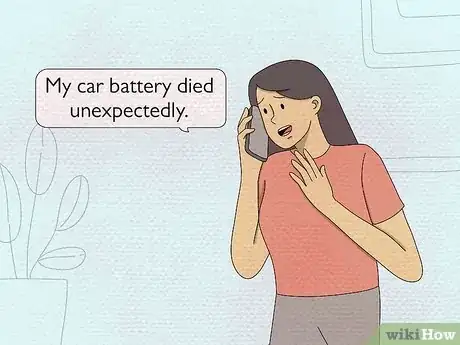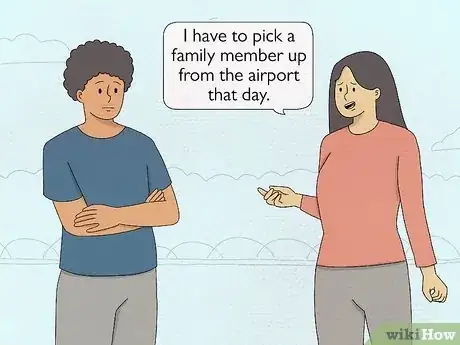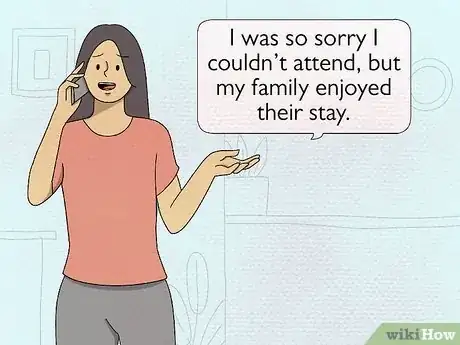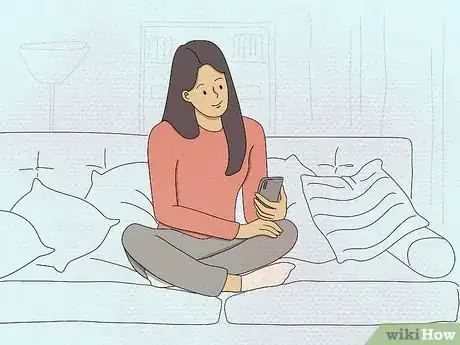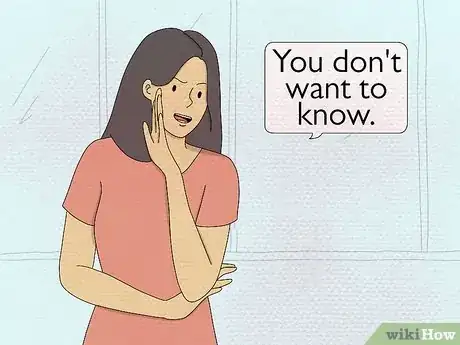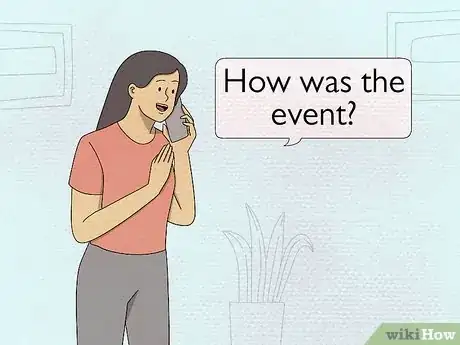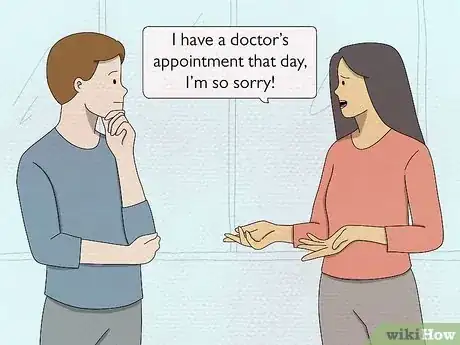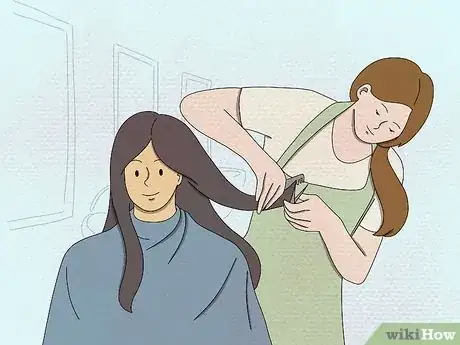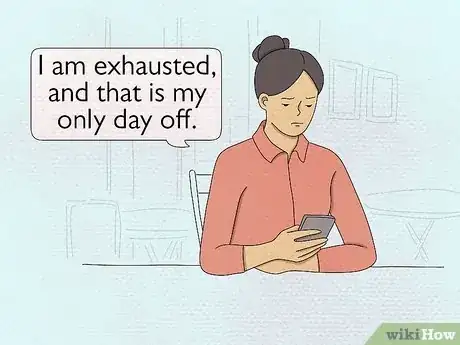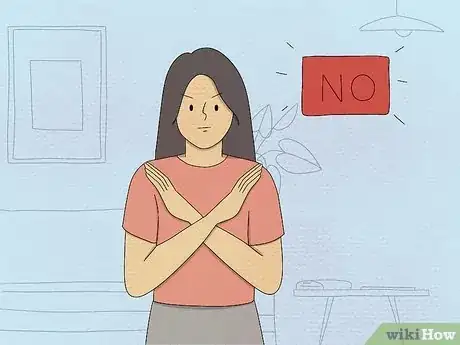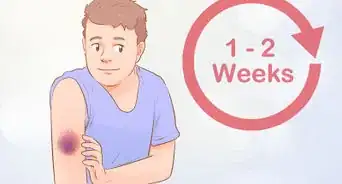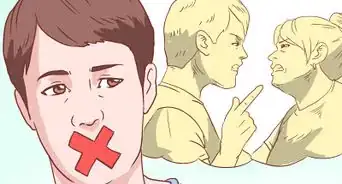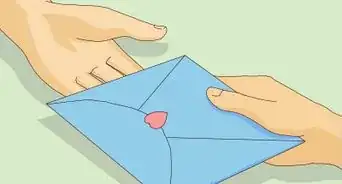This article was co-authored by Kateri Berasi, PsyD. Dr. Kateri Berasi is a Licensed Clinical Psychologist and the Founder of Transcendent Self, PLLC, a group therapy practice offering affirmative, collaborative, and intentional care, based in Brooklyn, New York. With over ten years of experience in the mental health field, Dr. Berasi specializes in working with adults from the LGBTQIA+ community and creative industries through individual therapy, couples counseling, group therapy, and costume therapy. She holds a BA in Psychology, Art History, and French Language and Literature from George Washington University and an MA and MEd in Mental Health Counseling from Columbia University. Dr. Berasi also holds a PsyD in Clinical Psychology from Long Island University.
There are 10 references cited in this article, which can be found at the bottom of the page.
This article has been viewed 148,449 times.
Some of life’s events come with celebrations you are expected to attend. While some celebrations are eagerly anticipated, others make you dread the day that they finally arrive. Whether you are expected to go to a family member’s birthday party or attend a holiday gathering at your office, there are some ways you can effectively get out of going to an event, including making an excuse, feigning an illness, double scheduling, and being honest about your hesitance.
Steps
Making An Excuse
-
1Choose a legitimate excuse. A legitimate excuse is one that could plausibly occur. A raccoon breaking into and flooding your apartment, for instance, is not a legitimate excuse. Excuses can include previous events, a sick relative, no access to transportation, or a family emergency, if your excuse is needed on short notice.[1]
- Choose an excuse you can easily remember. There is nothing quite as humiliating (and heartbreaking for the host) as forgetting your own made-up problem.
- A legitimate excuse might include one such as, “I had to take my child to the emergency room” or “My car battery died unexpectedly.”
-
2Practice your story. If you turn down an invitation to a significant event, you may have to field a lot of questions and needling. Practice your story, maybe even taking a moment to write down details of your given story to refer back to later.
- Be well informed of your fake needs, but do not sound forced or rehearsed. Take a moment to think about answers to any questions that are posed.
- Someone might ask how your emergency went. You can say something vague but helpful such as, “We were worried, but (insert name) is doing well now.”
- In the case of car trouble, you could say, “I was so bummed! I was able to get my car running a few hours later.”
Advertisement -
3Involve someone else. If possible, involve someone else who can corroborate your story. You could say, for instance, that you’d already promised a friend you’d take him to a sports game, and have him back you up. This is particularly important if you are turning down an invitation extended by a close friend or family member. These relationships can be fragile, and may deteriorate if your reason for not attending is not important or pressing enough.
- You can say that you have to take your child to a game, you have to take a friend to a lesson, or you promised a family member you’d attend their play. The possibilities are endless.
-
4Give plenty of warning. If possible, give the host or the person inviting you plenty of warning that you will not be in attendance. This is both a courtesy and lends an air of legitimacy to your inability to attend. If possible, avoid waiting until the last minute and extending an excuse hours before the event is due to start.
- An ahead-of-time warning could include an excuse such as, “I have to pick a family member up from the airport that day.”
- If an advance heads up is not possible, give them at least a few hours of warning. Do not call a few minutes before you were supposed to arrive and ask for a rain check.
-
5Follow through with your excuse. If you’ve given an excuse, follow through by providing additional details, if requested, discussing what occurred during the event, etc. Following through with your excuse will keep suspicions off of you and will make the person inviting you feel as though you weren’t simply blowing them off.
- If you are concerned about divulging too much and revealing your hand, feel free to say something simple, such as, “I was so sorry I couldn’t attend, but my family enjoyed their stay.”
Feigning An Illness
-
1Claim a safe but real illness. You should never claim a serious or debilitating illness you do not actually have, as these claims are easily debunked. This is especially true if the function in question is a work function, as your supervisor could request that a doctor’s note be delivered.[2]
- Real but safe illnesses include the flu, a cold, bronchitis, or (for women) even a case of severe menstrual cramps.
-
2Stay home. On the date of the event you’re hoping to avoid, do not--under any circumstances--leave the house. Sick people do not go out shopping, run errands, or drive around, unless a visit to the pharmacy is in order. Stay home to avoid suspicion.
- If you cannot stay home, prepare yourself for the possibility of running into someone. Have an excuse for being out and about at the ready.
-
3Schedule some self-care. During the time of the event, give yourself some at-home pampering. This way, if someone asks how your evening went, you can honestly say something such as, “I took it easy, took a bath, and stayed in bed for most of the night,” or something similar.[3]
- If you claimed to have a cold or the flu, you can give yourself a facial to reveal fresh, pink skin to create the illusion of being tired or out of sorts.
-
4Use vague language after the event has passed. Don’t go into specifics about your illness. You can simply say you were under the weather. Most people do not want to hear the details of others’ sickness, anyway, so do not feel you have to volunteer detailed information.[4]
- If someone does ask exactly what was wrong with you, you can grimace and say, “You don’t want to know,” or something in a similar vein.
-
5Follow up with the host. If necessary, contact the host and once again express your regret at having fallen ill, and ask how the event went. Doing so lends more credibility to your illness, as it creates the illusion that you are genuinely disappointed at having missed the party.
Double Scheduling
-
1Be quick on your feet. Quickly identify something you can schedule during the party or event in question, and ruefully claim you’ve already scheduled something else.[5]
- If you are not known for being quick on your feet, pause for a moment and say you’re thinking about whether or not you are free, or rifle through your phone or calendar while you try to come up with something.
- You can say something such as “I have a doctor’s appointment that day, I’m so sorry!”
-
2Schedule something at the same time. This is key to successfully pulling off this ruse. Actually scheduling something at the same time will make keeping up the pretense of your story extremely easy.
- If you claim a social or work appointment, you can even take a photo or recording of your presence at said appointment to upload to Instagram or Facebook.
-
3Go to your appointment, date, etc. Actually go once you’ve scheduled an appointment! This is a great way to complete a task you’ve pushed aside or avoided, as you have no way to back out of it. If someone later asks how your appointment went, you won’t have to fumble for an explanation: you’ll be able to honestly describe how your day or evening went.[6]
- Choose an appointment that is not readily rescheduled. A hair appointment, for instance, can likely be pushed to another time, but a doctor’s appointment is harder to reschedule.
-
4Express interest in hearing about the event. Once the event has passed, if you see the host or person who invited you, ask about the event, how it went, who was there, etc. Be gracious in hearing about what transpired.
-
5Express your regrets at having had plans. After you discuss the party, once again express your regret that you had something else scheduled, and finish your conversation with something such as, “I’m sorry I wasn’t able to come--it sounds like a great party.”[7]
- Be sincere. If you cannot think of something nice to say, you can just apologize and leave it at that.
Being Honest
-
1State your concerns about going. Upon being invited, honestly and clearly state why you don’t think attending would be a good idea. Your reasons can span quite a few possibilities, including running into a recent ex, not having enough knowledge of the event in question, or even that you are too tired and need a night to yourself.[8]
- Some people will be offended by you honestly expressing a desire to stay home. If this is something you can handle--great. If not, you may need to use one of the aforementioned techniques.
-
2Explain why you don’t think going is a good idea. Once you’ve expressed your concerns, reiterate why your presence is not needed. Once you’ve expressed your concerns, the host might try to convince you to change your mind, or have counter-arguments as to why you should come. Explain why your presence is a bad idea, citing example scenarios.[9]
- You could say, “My ex is going to be there, and I’m not ready to see her yet.”
- You could also say, “I am exhausted, and that is my only day off.”
-
3Answer any questions the host might have. When you turn people down, they are often flabbergasted and want reasons for your reaction. While you do not have to answer any questions they pose, do try to be gracious in your responses and provide any answers you feel comfortable giving.[10]
- When you answer questions, do so with respect. If you are not comfortable with the types of parties the host throws, try to phrase your reason carefully, such as, “I’m not much of a drinker, so I always feel awkward and out of place.”
-
4Be kind, but firm in your decision. At the close of the conversation, the person inviting you may offer a last-ditch attempt to get you to come. Many people end up caving in at this stage out of guilt and accept the invite, but be (kindly) firm in your “no.” It might hurt your host’s feelings, but they will likely appreciate your honesty.
- Do not give in, then change your mind and cancel later. If you do not want to go, say so directly. If you give in, stick to your commitment.
Warnings
- Avoid extravagant, over-the-top lies, as they will not be sustainable if you are pressed for details or resolutions.⧼thumbs_response⧽
- Do not get on social media during the time of the event you’ve gotten out of. This is the quickest way to discredit your claims.⧼thumbs_response⧽
- Never fake a death--not a death in the family, or an animal’s death, or even a distant acquaintance’s death, as these are far too easy to trace and can be proven wrong easily.⧼thumbs_response⧽
References
- ↑ http://www.huffingtonpost.com/2015/08/27/guide-for-getting-out-of-things_n_7818400.html
- ↑ https://www.scholarshippoints.com/campuslife/excuses-to-get-out-of-going-out/
- ↑ http://www.newhealthadvisor.com/How-to-Fake-Being-Sick.html
- ↑ http://www.huffingtonpost.com/2017/04/17/fake-illnesses-work_n_7942286.html
- ↑ http://lifehacker.com/5951066/how-to-lie-without-actually-telling-a-lie
- ↑ http://www.mydomaine.com/how-to-decline-an-invitation
- ↑ http://globalnews.ca/news/2807021/why-we-all-lie-to-get-out-of-socializing-and-how-to-do-it-right/
- ↑ http://www.huffingtonpost.co.uk/veronica-melkonian/10-excuses-youll-use-to-get-out-of-doing-something_b_3534011.html
- ↑ http://lifehacker.com/5919163/how-to-flake-out-on-someone-gracefully
About This Article
If you've committed to attending an event but you really don't want to go, you might be able to get out of it with the right excuse. You could say that your car battery died or that you're dealing with a family emergency. Just be prepared to explain what happened in detail and answer questions the next time you see the person who invited you to the event. You can also fake being sick. For example, you could say you have the flu, a cold, or bronchitis. Make sure you stay at home to avoid suspicion. Your cover will be blown if someone sees you out shopping or having a good time. For tips on how to double schedule to avoid attending an event, keep reading!
